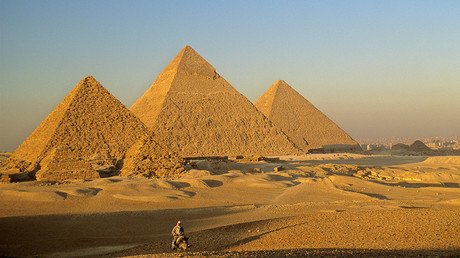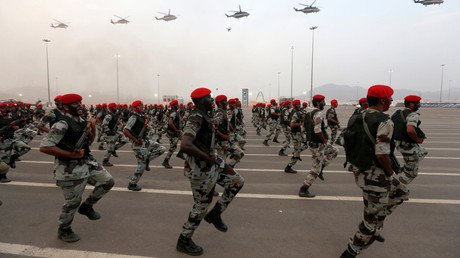Why Trump won't use his ultimate oil weapon
There is neither need nor desire on the part of the White House to use oil from the Strategic Petroleum Reserve (SPR) to keep a lid on prices, and from a strategic point of view, this is the right decision.
Last year, ahead of the return of US sanctions against Iran, there was speculation that Washington could use crude oil from the US SPR to cushion the blow that a loss of Iranian barrels would deal international markets and, more importantly, prices at the pump. Now, there seems to be the same talk again as prices remain excessively volatile.
Last year, the SPR speculation was rejected by Energy Secretary Rick Perry who said “If you look at the Strategic Petroleum Reserve and you were to introduce it into the market, it has a fairly minor and short-term impact.”
Also on rt.com ‘Molecules of freedom’?! US Energy Department rebrands LNG as ‘freedom gas’This time once again Washington’s response to higher oil prices for US drivers as driving season begins is unlikely to involve selling crude from the SPR. There are a couple of reasons for this: first, the effect of tapping the SPR to stabilize prices could boomerang, and second, there is simply no need to tap it.
The Strategic Petroleum Reserve was formed after the 1973 Yom Kippur war when Arab oil producers turned the taps off to punish the US for its support of Israel. The SPR is, in this sense, synonymous with national security. In this historical context, any news that Washington has decided to use oil from the SPR to keep prices stable could have a bullish albeit probably short-lived effect on prices.
As for the need to tap it at all, in a recent column for the Daily Telegraph, S&P Global Platts’ Andrew Critchlow noted that use of the Strategic Petroleum Reserve is tightly regulated and there have only been a handful of instances in which presidents have indeed tapped the reserve to cap an oil price rise—invariably in circumstances much graver than the current oil price situation.
Also on rt.com South Korea switches to Russian crude to replace banned Iranian suppliesNow, there is no war against Iraq as there was when President George Bush Sr. used oil from the SPR at the start of Operation Desert Storm in 1991. There is also no devastating hurricane as there was in 2005 when Katrina wreaked havoc on the Gulf Coast refinery industry and emergency supplies had to be released. Finally, West Texas Intermediate is trading significantly below US$120, which is where it was in 2011, when President Obama tapped the SPR to put a lid on prices which had soared in the wake of the Libyan civil war.
Granted, despite the lack of such grave circumstances, the perceived geopolitical risk for sufficient oil supply is quite high. The keyword, however, is “perceived.”
True, Iran has threatened more than once to close off the Strait of Hormuz if the US is successful in cutting off its oil exports completely. Yet if this happens, no amount of SPR release would rein in prices: Hormuz is the biggest oil chokepoint in the world.
True, Venezuela’s oil industry is in shambles and the effect of this is beginning to be felt across the refining world as the heavy oil supply dwindles. However, there is always Canada and its heavy oil for Gulf Coast refiners, so any bullish impact on prices from the heavy crude shortage would be limited.
Also on rt.com What diplomacy? Here are 36 countries the US has bullied this weekFinally, there is US oil production itself. Just yesterday the Wall Street Journal reported that US crude oil stockpiles outside the SPR are rising at the fastest rate since 2016, and this has sparked worry about an oversupply rather than a shortage. This worry, in turn, has pressured prices in a way that is arguably a lot more effective than any plans to use oil from the SPR to keep prices under control.
In short, there is neither need nor desire on the part of the White House to use oil from the SPR to keep a lid on prices. The latter, according to S&P Global Platts’ Critchlow, is because for President Trump, tapping the SPR is a last-resort trump card. The time for playing last-resort cards has not yet come.
This article was originally published on Oilprice.com














